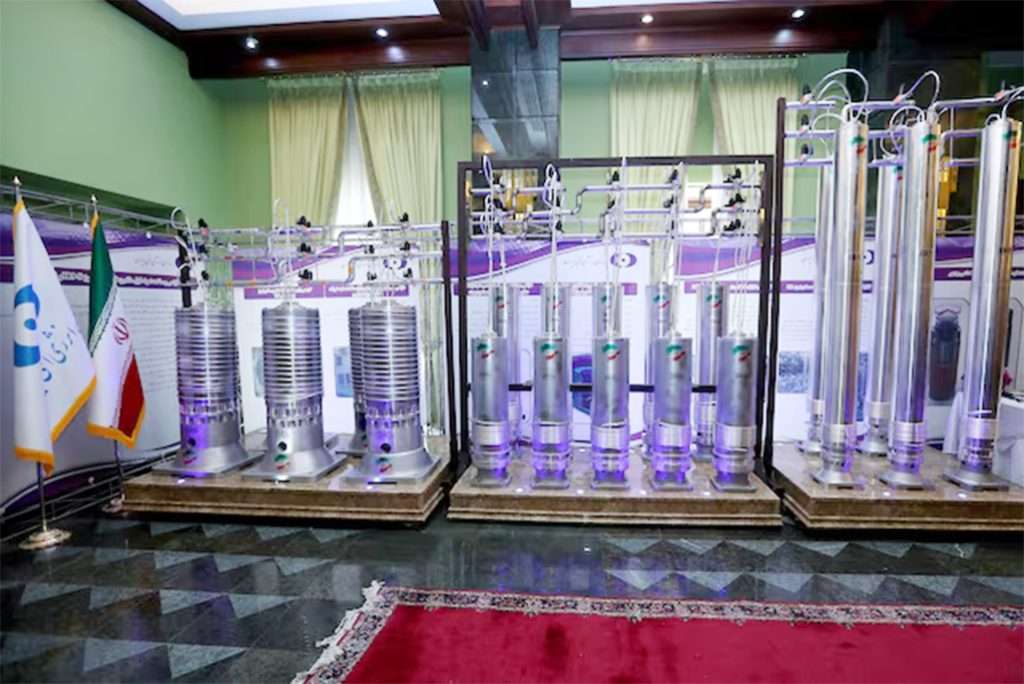Iran seeks US guarantees to limit uranium enrichment program

Talks with Iran, instigated by the Trump administration, designed to curtail Tehran’s ability to create a nuclear bomb appear to be moving in the right direction although at a modest pace due to Iran’s concerns that any deal could be scrapped with future US presidents.
Iran told the United States during indirect talks recently that it is open to accepting limits on its uranium enrichment program, but only if it receives solid guarantees that former President Donald Trump, or any future administration, will not abandon the deal again, reports The New Arab.
A senior Iranian official, speaking on condition of anonymity, said on April 18th that Tehran has emphasised the need for assurances in order to avoid a repeat of Trump’s 2018 withdrawal from the 2015 nuclear pact and the reimposition of crippling sanctions.
The discussions, held in Oman, were described as “positive” by both sides and are set to continue with a second round of negotiations on April 19th in Rome.
These are the first signs of substantive diplomatic engagement since Trump revived the “maximum pressure” campaign against Tehran in February, demanding a complete halt to Iran’s uranium enrichment program.
In the years since the US exit from the accord, Iran has significantly expanded its nuclear activity beyond the limits set by the 2015 deal, which was designed to prevent it from developing an atomic bomb; a goal Tehran insists it does not pursue.
While the Biden administration previously attempted to revive the agreement, it failed to meet Iran’s key demand: binding guarantees that a future US leader would not pull out again.
That failure has left Tehran deeply skeptical of renewed talks, particularly under Trump’s influence, as he has repeatedly threatened military action unless Iran halts its nuclear advancements.
Tehran’s negotiating stance remains rooted in red lines “mandated by Supreme Leader Ayatollah Ali Khamenei”, which, according to the Iranian official, cannot be compromised.
Iran will not agree to dismantle its centrifuges, completely stop uranium enrichment, or reduce its stockpile of enriched uranium below the levels allowed under the original 2015 deal.
The country also refuses to discuss its missile program, which it considers a separate issue and not subject to any nuclear negotiations.
Despite the hardened positions, Iran sees some potential common ground emerging.
“Iran understood in indirect talks in Oman that Washington doesn’t want Iran to stop all nuclear activities, and this can be a common ground for Iran and the US to start a fair negotiation,” the source said.
Tehran has indicated it is willing to cooperate with the UN’s International Atomic Energy Agency (IAEA), seeing it as the “only acceptable body in this process”, to offer transparency and demonstrate that its nuclear program remains peaceful.
In exchange, the source said Araghchi had told the Americans that, in return for that cooperation, Iran expects prompt and meaningful sanctions relief, particularly targeting its oil exports and financial sector.
A deal, Iranian officials said on April 18th, is still possible, but only if the United States “demonstrates seriousness of intent and does not make unrealistic demands.”
However, a wide gap remains.
On April 15th, top US negotiator Steve Witkoff posted on social media platform X that Iran must “stop and eliminate its nuclear enrichment” to reach an agreement with Washington.
Iran’s insistence on preserving key elements of its nuclear program means that even if both sides are willing to talk, bridging their differences will be far from straightforward.
The New Arab. Maghrebi. Levantis
Want to chase the pulse of North Africa?
Subscribe to receive our FREE weekly PDF magazine













